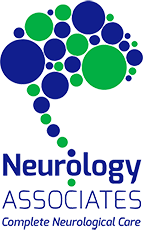A Neurologist Offers Life-Saving Advice on Detecting Early Warning Signs of Stroke
This article first appeared in January 2018. Updated March 2023.
The National Stroke Association defines stroke as a condition wherein blood flow to an area of the brain is cut off. The brain’s cells are then deprived of oxygen, causing them to die off. As a result, it can cause speech impediment, impaired memory and loss of movement in a patient. In the worst cases, a stroke can even be fatal.
However, as a neurologist may tell you, up to 80 percent of strokes can be successfully prevented. All it takes is to be aware of the warning signs of stroke and quick action to save a life or even yours.
FAST Response
The American Heart Association recommends learning what the acronym FAST stands for in the event of a stroke.
Face Drooping
People who are suffering from a stroke may appear to have a drooping face. One side may look uneven or lopsided. This is also normally accompanied by a sensation of numbness, especially on the affected side.
Arm Weakness
Weakness or numbness in one arm is a serious sign of stroke. If you or someone else has difficulty in raising both arms or if one arm is drifting downward, take immediate action.
Slurred Speech
Pay attention to slurring, especially when one is not under the influence of alcohol or other substances. Ask the person to repeat a short, simple sentence and see if they can correctly and clearly say the words.
Time to Call 911
Someone showing one or all these signs need prompt medical attention. Even if the symptoms do go away after a while, get yourself or another person you suspect of experiencing a stroke to the nearest hospital.
Other Symptoms of Stroke
The abovementioned signs of stroke are the ones commonly reported by most patients. However, not all episodes will be the same for everybody. Other people may notice different symptoms. For instance, men and women may experience dissimilar manifestations of stroke or a patient may be suffering from a different type of stroke. Therefore, it is best to be familiar with the lesser known signs. Be on the lookout for paralysis, numbness, pins and needles sensation, loss of balance, blurred vision, involuntary eye movements, dizziness, severe headache, confusion, loss of feeling on parts of the body, difficulty swallowing, and muscle stiffness.
Knowing the early symptoms of stroke may help minimize its long-term effects. As with any medical condition, however, prevention is still the best course of action. If your risk for stroke is particularly high, it pays to be safe by visiting a neurologist from trusted institutions in Leesburg, VA such as Neurology Associates.
Sources:
Tips to Detect Early Warning Signs of Stroke, MedicineNet.com






